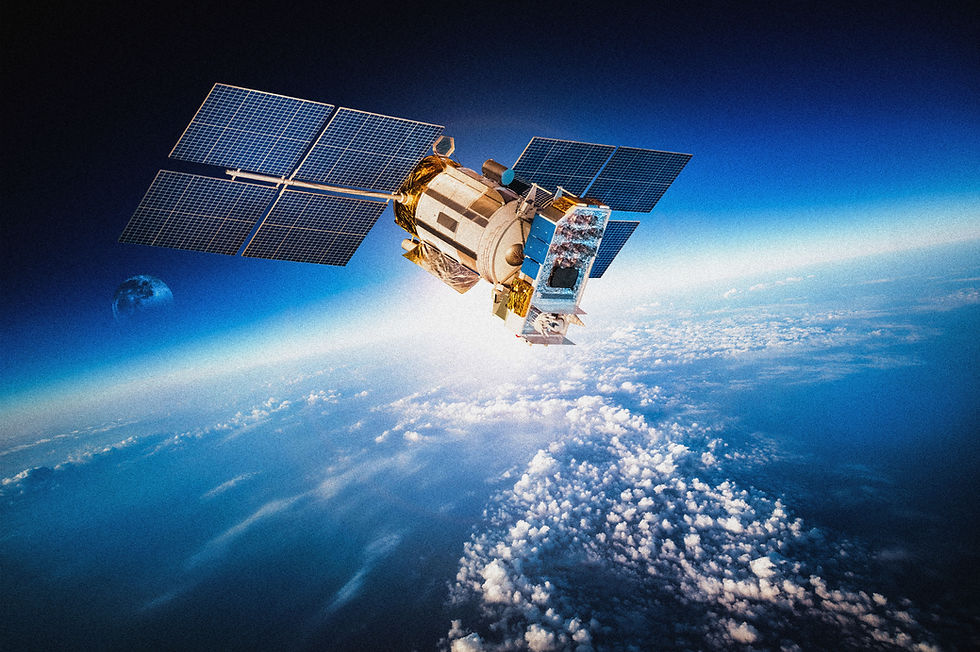The Economics of Space Exploration
- The Decision Maker

- Mar 14, 2024
- 3 min read
Unveiling the Economics Behind Space Exploration. From the role of NASA and ESA to the impact of Elon Musk's SpaceX.
London, 24 March 2024
Space exploration has always been a fascinating topic for many people around the world. The idea of exploring the unknown, discovering new planets, and potentially finding life beyond Earth has captured the imagination of scientists, researchers, and the general public alike.
But besides the scientific and technological advancements that come with space exploration, there is also an economic aspect to consider. We will approach the economics of space exploration, focusing on the role of NASA and the European Space Agency, the funding allocated to these organizations, the future of commodities in space, and the impact of companies like SpaceX on the industry.

The Role of NASA and ESA in Space Exploration
NASA, the National Aeronautics and Space Administration, and the European Space Agency (ESA) are two of the most prominent organizations dedicated to space exploration. NASA, based in the United States, has been at the forefront of space research and exploration for decades. ESA, on the other hand, represents a consortium of European countries working together to advance space technology and explore new frontiers.
How Much Public Funding Goes to NASA and ESA Each Year? Does It Worth It?
Both NASA and ESA receive a significant amount of public funding each year to carry out their missions. In the case of NASA, the agency's budget for the fiscal year 2021 was approximately $23.3 billion. ESA, on the other hand, operates on a smaller budget of around €6.68 billion for the same year. Some may question whether this level of funding is justified, considering other pressing needs on Earth. However, the scientific, technological, and economic benefits that result from space exploration cannot be understated.
Is the Future of Commodities Reliant on Space Exploration? Will We Discover New Investable Commodities?
The future of commodities may indeed rely on space exploration. As we continue to deplete Earth's natural resources, the possibility of mining asteroids, for example, becomes more appealing. Asteroids are rich in valuable metals such as platinum, gold, and rare earth elements, which could potentially be extracted and brought back to Earth for use. In addition, the discovery of new planets and moons with unique compositions could open up new opportunities for investment in the mining and extraction of valuable resources.
What is the Role of Elon Musk's SpaceX Company in Space Exploration?
Elon Musk's SpaceX company has been a game-changer in the field of space exploration. Founded in 2002, SpaceX has revolutionized the way we think about space travel, with the ultimate goal of enabling humans to live on other planets. The company's reusable rocket technology has significantly reduced the cost of launching payloads into space, making space travel more accessible and affordable. SpaceX's ambitious projects, such as the Starship spacecraft and the planned Mars colonization mission, are pushing the boundaries of what is possible in space exploration.
If we would draw a conclusion we would have to emphasise that the economics of space exploration are complex and multifaceted, with a wide range of implications for society as a whole. From the role of organizations like NASA and ESA to the potential for mining asteroids and the disruptive innovation of companies like SpaceX, the future of space exploration holds great promise for economic growth and technological advancement. Investing in space exploration may be costly, but the potential rewards in terms of scientific discoveries, technological breakthroughs, and economic opportunities make it a worthwhile endeavour.
(Research and edit: The Decision Maker - Business Editors)




Comments